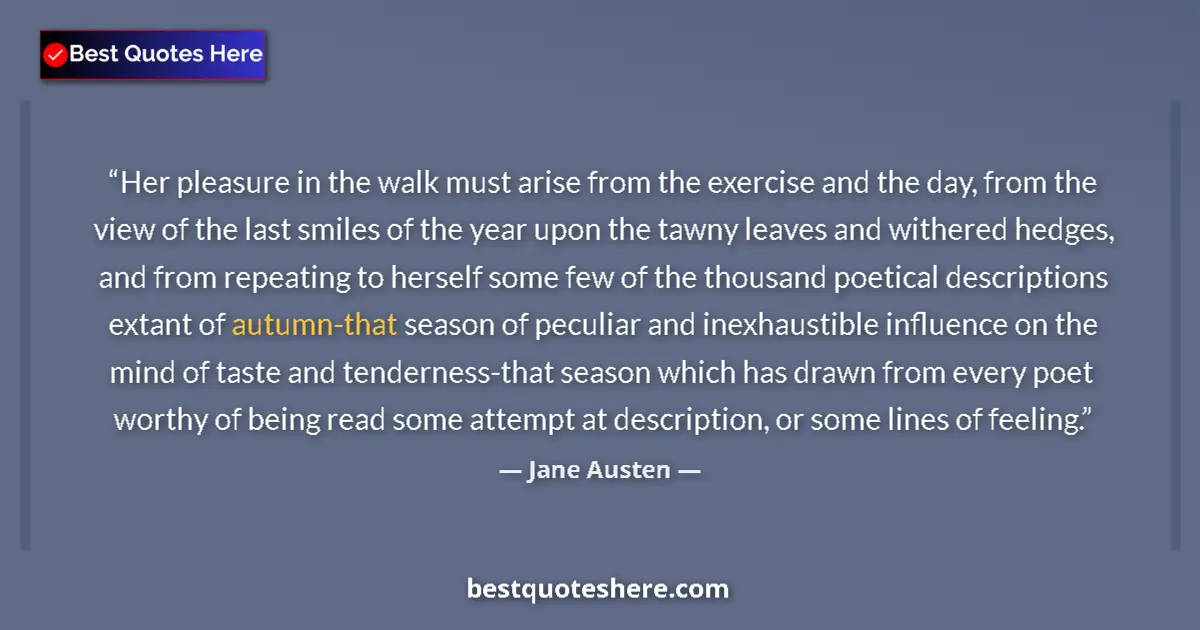"Her pleasure in the walk must arise..." - Quote by Jane Austen
Her pleasure in the walk must arise from the exercise and the day, from the view of the last smiles of the year upon the tawny leaves and withered hedges, and from repeating to herself some few of the thousand poetical descriptions extant of autumn-that season of peculiar and inexhaustible influence on the mind of taste and tenderness-that season which has drawn from every poet worthy of being read some attempt at description, or some lines of feeling.

More by Jane Austen
“She will never submit to any thing requiring industry and patience, and a subjection of the fancy to the understanding.”
“The evergreen! How beautiful, how welcome, how wonderful the evergreen! When one thinks of it, how astonishing a variety of nature! In some countries we know that the tree that sheds its leaf is the variety, but that does not make it less amazing, that the same soil and the same sun should nurture plants differing in the first rule and law of their existence.”
“One word from you shall silence me forever.”
More on Nature
“While my interest in natural history has added very little to my sum of achievement, it has added immeasurably to my sum of enjoyment in life.”
“Nature and human life are as various as our several constitutions. Who shall say what prospect life offers to another?”
“Sir, the year growing ancient,Not yet on summer's death nor on the birthOf trembling winter, the fairest flowers o' th' seasonAre our carnations and streaked gillyvors,Which some call nature's bastards.”
More on Poetry
“Not by wisdom do they [poets] make what they compose, but by a gift of nature and an inspiration similar to that of the diviners and the oracles.”
“Poets are like baseball pitchers. Both have their moments. The intervals are the tough things.”
“Shakespeare possesses the power of subordinating nature for the purposes of expression, beyond all poets. His imperial muse tosses the creation like a bauble from hand to hand, and uses it to embody any caprice of thought that is uppermost in his mind. The remotest spaces of nature are visited, and the farthest sundered things are brought together, by subtle spiritual connection. We are made aware that magnitude of material things is relative, and all objects shrink and expand to serve the passion of the poet.”